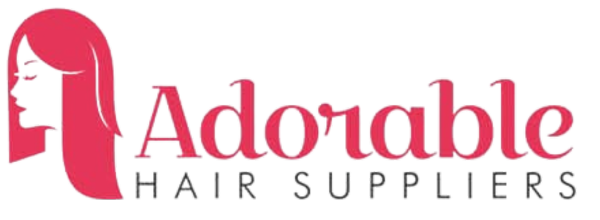
Ethical Sourcing – Does Your Chennai Hair Supplier Follow Best Practices?
The demand for human hair extensions continues to rise globally, with Chennai being one of the major hubs for hair collection and export. The quality, texture, and adaptability of Indian hair, particularly temple hair, make it extremely desirable. But as the industry grows, so does scrutiny on how ethically this hair is sourced.
Whether you’re a hair business owner or an individual buyer, you must ask: Is your Chennai hair supplier following ethical sourcing practices?
In this blog, we dive deep into what ethical sourcing means in the human hair industry, particularly in Chennai, and how you can ensure your supplier meets global standards for fair and humane practices.
What Is Ethical Hair Sourcing?
The term “ethical hair sourcing” describes the open, voluntary, and equitable gathering of human hair. This ensures that:
Hair donors give consent
Donors are treated with dignity
Donors are not exploited for profit
Profits are reinvested into communities, especially in temple donations
Supply chains are transparent and traceable
Ethical sourcing stands in stark contrast to exploitative practices where hair is collected under duress, through coercion, or without compensating or informing the donor.
Why Chennai Is at the Heart of the Hair Industry
Chennai, located in Tamil Nadu, is a strategic hub in the global human hair market for several reasons:
Proximity to major temples like Tirupati, where devotees offer hair as a religious sacrifice.
Established logistics and export systems, making it easier to ship hair globally.
competent workers to prepare, clean, and sort hair extensions.
Because of its volume and influence, Chennai-based suppliers have a major responsibility in shaping how ethical the human hair industry becomes.
Red Flags: Signs Your Chennai Hair Supplier Might Not Be Ethical
No information on sourcing
If your supplier is vague or refuses to disclose where or how they source their hair, that’s a major red flag.
Very low prices
The provider can be taking both literal and symbolic ethical shortcuts if the prices seem too good to be true.
No documentation or traceability
Ethical suppliers often provide documentation that traces hair back to its source, especially temple donations.
No mention of donor consent
Suppliers who don’t talk about donor consent might be involved in exploitative practices.
Unbranded or inconsistent packaging
Ethical vendors often maintain consistent branding and packaging to assure quality and transparency.
✅ What Ethical Sourcing Looks Like in Practice
Here’s what the best Chennai hair suppliers are doing:
- Working Directly with Temples
Hair was donated in temples such as Tirumala Tirupati Devasthanam sale in open, government-monitored bidding.. Reputable suppliers buy this hair and provide proof of purchase.
- Maintaining Supply Chain Transparency
Ethical suppliers are open about their process—from donation or purchase, through cleaning, wefting, and export.
- Fair Wages and Working Conditions
They employ workers under humane conditions, paying fair wages and providing benefits. Women, who make up a majority of the hair-processing workforce, should be protected and fairly compensated.
- Sustainability Practices
Some suppliers go a step further by adopting eco-friendly packaging, reducing water use in hair processing, and using biodegradable materials.
- Certifications and Audits
While the hair industry lacks universal certification, some suppliers voluntarily undergo third-party audits to prove their commitment to ethical standards.
Questions to Ask Your Chennai Hair Supplier
To evaluate if your supplier follows ethical practices, ask:
Where do you source your hair from?
Do you buy hair from temple auctions? Can you prove it?
Do donors give hair voluntarily and knowingly?
How are your factory workers treated and paid?
Is your supply chain traceable?
If they dodge these questions, it’s time to look elsewhere.
Why Ethical Sourcing Matters
Besides the moral imperative, ethical sourcing also benefits your brand:
Builds trust with customers
Differentiates you from competitors
Reduces legal and reputational risks
Supports local communities and sustainability
Consumers today are more socially conscious than ever. Companies that don’t follow moral standards run the danger of losing their customers and credibility.
Ethical Alternatives: What You Can Do
If you’re unsure about your current supplier:
Change to reputable vendors who purchase temple hair in an open manner.
Partner with suppliers offering full traceability and donor consent.
Educate your customers about the importance of ethically sourced hair.
Promote fair trade and reinvest a portion of your profits in donor communities.
The Indian hair industry, particularly in Chennai, can be a powerful force for good—if suppliers commit to ethical sourcing. As a buyer or business owner, you play a key role in driving that change.
Choose your suppliers wisely. Demand transparency. Support practices that respect human dignity and sustainability.
When you invest in ethically sourced hair, you’re not just buying a product—you’re making a statement.




